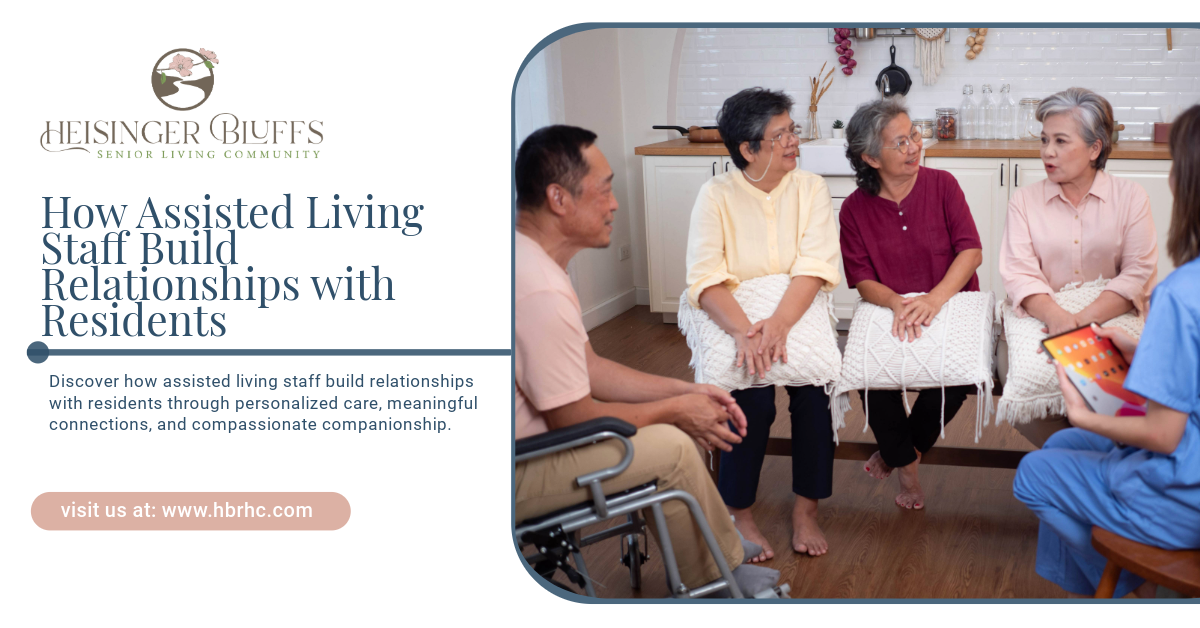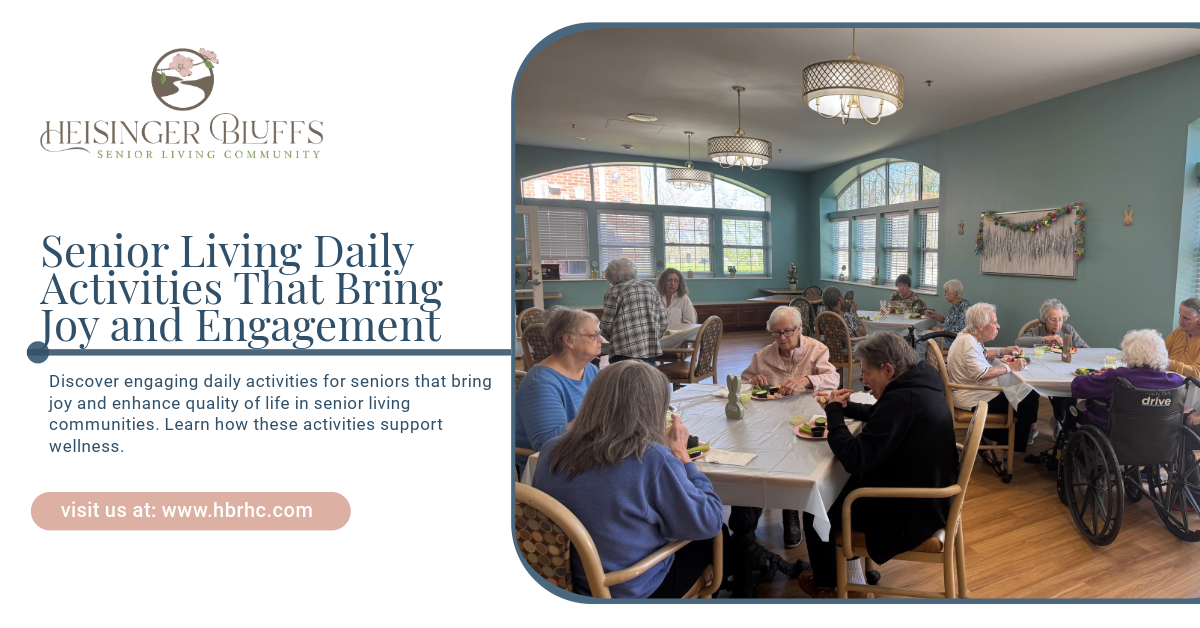How Assisted Living Staff Foster Meaningful Relationships with Residents

The transition to assisted living can be a significant change for residents and their families. What often makes this journey smoother is the genuine relationships that develop between residents and staff. Beyond providing daily care, compassionate staff members prioritize building trust, companionship, and meaningful connections.
In this blog, we’ll explore how assisted living staff foster relationships with residents, share examples of personalized care, and highlight the profound impact these bonds have on residents' quality of life.
The Role of Relationships in Assisted Living
Why Relationships Matter
Strong relationships between residents and staff create a foundation of trust, making residents feel comfortable, valued, and understood. These connections contribute to:
- Improved emotional well-being
- Enhanced communication and care delivery
- A sense of community and belonging
Key Ways Staff Build Relationships with Residents
1. Personalized Care Plans
Staff members take time to understand each resident’s needs, preferences, and routines. This individual approach ensures residents feel respected and cared for in ways that align with their unique personalities.
Example:
- Learning a resident’s favorite breakfast to start their day with comfort.
- Remembering special dates, like birthdays or anniversaries, and celebrating them meaningfully.
2. Taking Time to Listen
Active listening plays a significant role in relationship-building. Staff members encourage residents to share their life stories, opinions, and feelings, creating deeper emotional bonds.
Example:
One caregiver regularly spends time with a resident discussing her childhood memories, bringing a sense of nostalgia and joy to their interactions.
3. Encouraging Shared Activities
Participating in shared activities, such as crafts, games, or fitness classes, allows staff and residents to connect over mutual interests. These interactions often lead to laughter, teamwork, and strengthened bonds.
4. Demonstrating Empathy and Patience
Many residents may experience emotional challenges as they adjust to assisted living. Staff members who show empathy and patience build trust, helping residents feel more at home.
Example:
A caregiver who calmly supports a resident during moments of confusion demonstrates understanding and compassion, reinforcing the resident’s sense of security.
5. Celebrating Achievements Together
Whether it’s reaching a fitness goal, finishing a puzzle, or learning a new skill, staff celebrate residents' accomplishments, boosting their confidence and self-esteem.
Real Stories of Compassion and Connection
Story 1: Remembering the Little Things
One caregiver noticed a resident loved gardening but missed her old flower beds. To bring her joy, the staff created a small, personalized garden for her to tend. This thoughtful act not only rekindled a passion but also created a lasting bond between the caregiver and resident.
Story 2: Shared Traditions
During the holidays, a staff member learned a resident’s family recipe for cookies and baked them together. This tradition brought back fond memories for the resident and deepened their relationship.
Story 3: Supporting Through Loss
After a resident lost a loved one, a staff member offered companionship through daily walks and heartfelt conversations. This unwavering support helped the resident navigate a difficult time while feeling cared for and understood.
How Staff Are Trained to Build Relationships
Assisted living staff often receive training that emphasizes the importance of interpersonal skills and emotional intelligence. Key areas of focus include:
- Effective Communication: Techniques for active listening and empathetic responses.
- Cultural Competence: Understanding diverse backgrounds and respecting individual values.
- Conflict Resolution: Navigating misunderstandings or tensions with patience and professionalism.
- Engaging Activities: Encouraging participation in programs that promote connection.
Benefits of Strong Staff-Resident Relationships
For Residents:
- Improved Mental Health: Meaningful relationships help reduce feelings of loneliness or anxiety.
- Enhanced Trust: Residents feel more comfortable expressing their needs, leading to better care.
- Increased Happiness: Feeling valued and connected boosts overall life satisfaction.
For Staff:
- Job Satisfaction: Forming genuine bonds makes caregiving more fulfilling.
- Better Care Delivery: Understanding residents deeply enables more tailored and effective support.
How Families Can Support Relationship Building
Families play a critical role in supporting these connections by:
- Sharing Insights About Loved Ones: Providing staff with details about a resident’s likes, dislikes, and personal history helps foster deeper bonds.
- Encouraging Interaction: Suggesting activities where residents can engage with staff, such as games or storytelling sessions.
- Expressing Appreciation: Acknowledging staff efforts strengthens their commitment to creating meaningful relationships.
Creating a Sense of Community
In addition to individual bonds, assisted living facilities often foster a larger sense of community through group activities and events. Staff play an integral role in creating a welcoming environment where residents can build friendships with their peers while feeling supported by caregivers.
Conclusion
At Heisinger Bluffs, our dedicated staff members prioritize building meaningful relationships with every resident. Through personalized care, empathetic interactions, and shared moments of joy, we create a supportive and nurturing environment where residents thrive. Contact us today to learn more about our approach to compassionate care.
Frequently Asked Questions
How do staff personalize care for residents?
Staff get to know residents’ preferences, routines, and life stories to create care plans tailored to their individual needs.
What types of activities help build relationships between staff and residents?
Activities like crafts, fitness classes, shared meals, and one-on-one conversations foster meaningful connections.
How do strong staff-resident relationships improve care?
Trusting relationships make residents more comfortable sharing their needs, allowing staff to deliver more effective and compassionate care.











